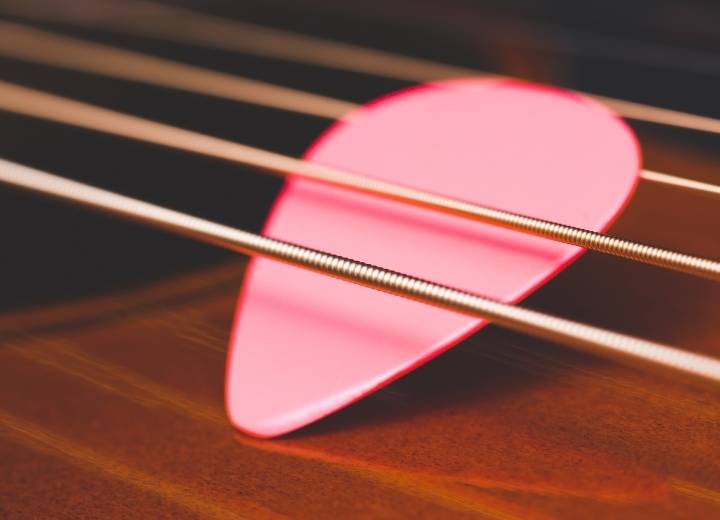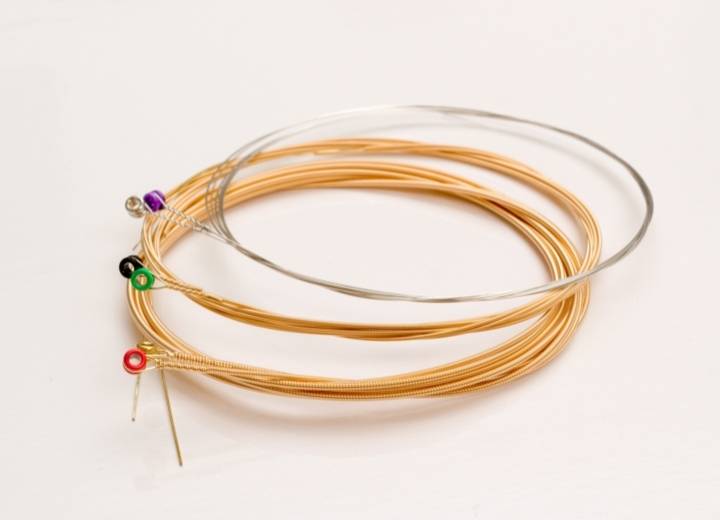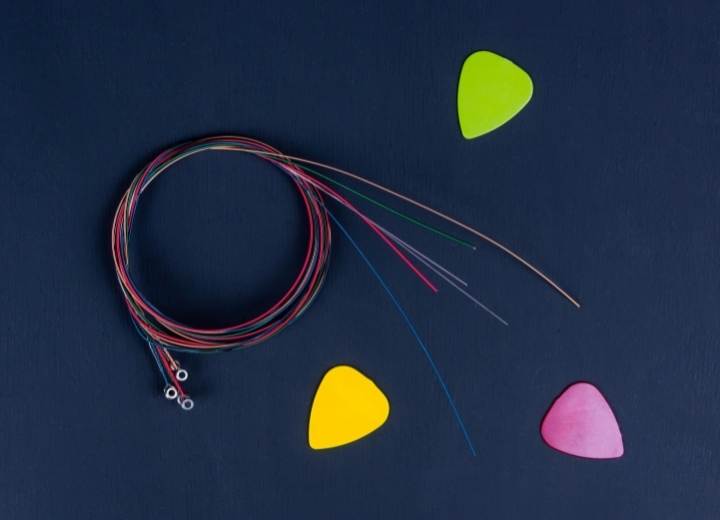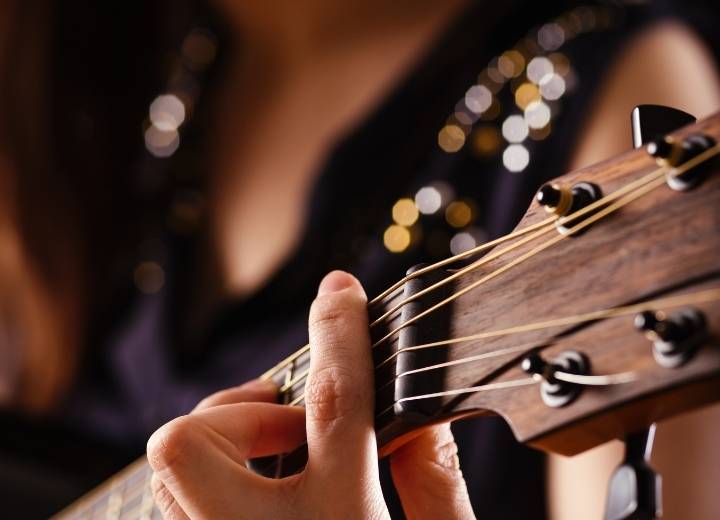
What guitar strings are best for acoustic?
To choose the best strings for acoustic guitar. You need to choose the type of string that best suits your acoustic guitar.
Whether a string is suitable or not depends on the following factors:
- Size and material of the strings
- Your type of acoustic guitar
- The sound you want
- Age of the guitar
- Your playing ability
You must depend on the factors above to choose the strings that best suit your acoustic guitar. That’s the best string for your acoustic.
To better understand how to choose strings, follow the following analysis!
Factors determining the best strings for acoustic guitar
#1. Size and material of the strings
Acoustic Guitar strings are produced with different sizes, so they are divided into several types:
- Extra Light
- Medium Light
- Light
- Medium
- Heavy
- Extra Heavy
The lighter the string, the thinner it is, the easier it is to hit the keys. Heavy strings are bigger, stiffer, and require a lot of strength from the player. It has a brighter and more resonant sound, suitable for playing strumming.
The sound of an Acoustic Guitar string depends a lot on each person’s playing style and skill level, so buyers should determine the exact string weight that’s right for them.

Each type of string has its own advantages and disadvantages
#2. String Size
- Light string size: 0.01-0.04
- Medium-sized strings: 0.013-0.06
- Heavy duty strings size: 0.014-0.09
#3. Materials for making guitar strings:
Copper wire is sometimes referred to as 80/20 copper. Because they are made of 80% copper and 20% zinc. They can be used for all styles of play. This string has a bright sound but fades quickly after a few hours of play. This is the most commonly used type of wire.
Copper Phosphor is a brass string with phosphor added. It can also be used for all play styles. This type of string has a warmer and more resonant sound than copper wire.
Silk and steel strings create a mellow sound. This type of string puts less pressure on the guitar. It is often used for special guitars. The sound is quieter and not as durable as the two strings above, but easier to play.
Polymer-coated strings have less strength and luminosity than uncoated strings. However they have good presence and warmth; anticorrosion. Some cords include colorants for visual appeal.
#4. Your type of acoustic guitar
It is the type of acoustic guitar you have that determines which strings are the best.
Most Dreadnoughts are suitable for medium and heavy strings. The reason is in the design of this guitar. They are large in size and resonant. The body and neck can both bear great force. Therefore, large sized wires will be suitable for them. Produce loud and resonant sounds.
However, some other guitars like Parlor are suitable for light strings. Basically due to their design and size they are not able to withstand the tension from the large rope.
Any guitar that comes with the wrong strings can easily bend, damage the neck, or break the strings. For the best sound and longevity of the instrument. You need to choose the right type of string.
#5. The sound you want
The sound from an acoustic guitar relies on strings. From the size to the material of the strings, everything affects the sound of the strings.

Each type of rope has a different vibration capacity
If you want big reverberation, choose a large wire size to see clearly. On the contrary, if you need a delicate, gentle sound, a light string is the best choice.
In addition, when the string is tight, the vibration when plucking the string will be more concentrated (the string oscillates with a smaller arc than the soft string) and the sound is less buzzing. The sound will definitely be better!
Each type of rope has a different vibration capacity. It may or may not sound right for your guitar.
#6. Age of acoustic guitars
The length of time the guitar has been around also affects the choice of strings. An acoustic guitar that lasts for many years will have many parts that can fail.
They are very sensitive, and the slightest mistake of choosing the wrong strings can damage the guitar. Especially in the neck part.
Older guitars often have a weaker neck than usual. You should use lightweight strings with long-lasting guitars.
#7. Your playing ability
For lighter strings it is easy to bend. This is suitable for beginners and fingerstyle players. Or players who like to use the bend notes technique.

Options for beginners are light and mid-range strings
Conversely, with heavier guitar strings, it will be more difficult to play. When playing it will sound louder and more solid.
Heavy strings are bigger, stiffer, and require a lot of strength and skill. When you are just starting to play guitar and have little skill. You won’t be able to play this string.
Options for beginners are light and mid-range strings. Those who have been playing guitar for a long time will have good control of heavy strings.
When should you change the strings?
As recommended by the manufacturer and professional guitar players. You should change the strings every 2 weeks (play a lot) or once a month (play infrequently).
If you do not have the economic conditions to replace the strings as recommended. The best way is to train your ears to be very sensitive. You must be aware of changes in the sound when the guitar strings are too old.
Many people just buy new guitar strings and replace them when they break. But according to the advice of longtime players, you should not do it this way. It is advisable to change the strings before the sound becomes too bad.
Tips to preserve strings longer
- Choose to buy suitable and high-quality strings đàn
- Choose the right guitar strings for your playing style
- Keep the guitar in the bag when not in use
- Wash and dry your hands before playing acoustics
- Clean the piano after playing
- Polish the strings every time you clean the guitar
Conclusion
Figuring out what guitar strings are best for acoustic is very difficult. However, you need to find the most suitable strings. It will be good for both acoustic guitars and you. Hopefully, through this article, you can choose the best acoustic strings for you!
References:
